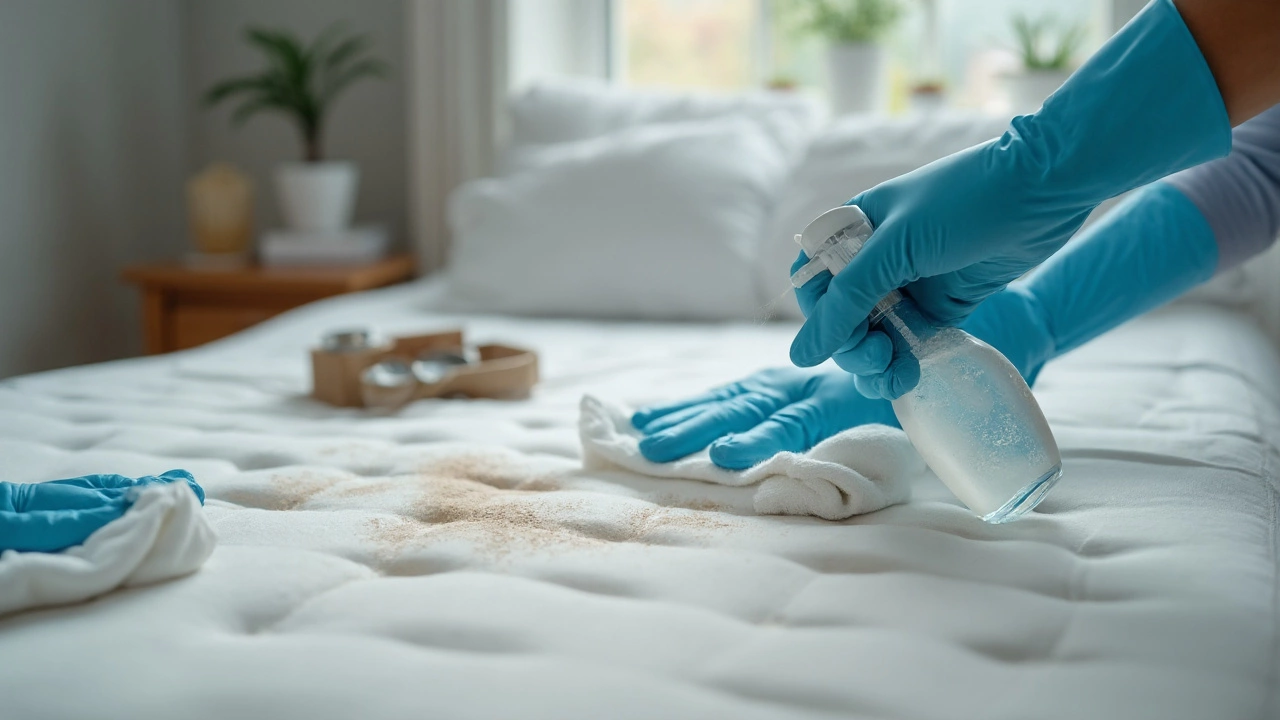Enzymatic Cleaner: What It Is and Why It Works
Ever wonder why some cleaners can erase a tough coffee stain while others just push it around? The secret is enzymes – tiny proteins that eat away at organic messes. When you buy an enzymatic cleaner, you’re basically getting a lab‑grown stomach that digests dirt, grease, and even bad smells.
Because enzymes target the exact molecules that cause the problem, you get a deep clean without harsh chemicals. That means less risk for kids, pets, and the planet. It’s the kind of clean Fortis Cleaning Solutions loves to use on homes and offices across the UK.
How Enzymes Clean Your Home
Enzymes work like this: they latch onto a specific kind of stain – protein, oil, or carbohydrate – and break it into smaller pieces. Those pieces are then easy for water to wash away. For example, a protein‑based stain like blood or egg gets split into amino acids, which dissolve quickly. Grease from cooking breaks down into fatty acids, and sugar spills turn into simple sugars that rinse out.
This targeted action means you don’t need to scrub forever. A few minutes of soaking is often enough, and you avoid the abrasive scrubbing that can damage fabrics or surfaces. The result is a cleaner that’s gentle on everything from upholstery to kitchen counters.
Another big win is odor removal. Bad smells are usually caused by bacteria feeding on organic matter. Enzymes destroy that matter, starving the bacteria and stopping the smell at the source. That’s why enzymatic cleaners are a go‑to for pet accidents, mouldy towels, and even musty basements.
Best Ways to Use Enzymatic Cleaners
Got a Spilled Wine?
Blot the excess, then spray the enzymatic cleaner directly onto the stain. Let it sit for 10‑15 minutes – the enzymes need time to work. After that, wipe with a damp cloth or rinse with water. You’ll see the stain lift without a harsh bleach line.
Pet Accidents?
First, remove solid waste and blot the area. Apply a generous amount of enzymatic cleaner, making sure it soaks into the carpet or upholstery. Cover with a clean towel and let it stay for at least 30 minutes. The enzymes will break down the urine proteins, and the odor disappears.
Kitchen Grease?
Spray the cleaner on the greasy stovetop or oven door, wait a few minutes, then wipe with a non‑abrasive pad. The fatty acids are broken down, so you won’t need to scrub for ages.
Tips for Success:
- Read the label – some cleaners are formulated for specific stains (protein vs. oil).
- Don’t mix enzymatic cleaners with bleach or ammonia; the chemicals can kill the enzymes.
- For best results, keep the surface warm (around 20‑25°C). Enzymes work faster in mild warmth.
- Store the bottle in a cool, dark place. Enzymes lose potency if they get too hot or exposed to direct sunlight.
If you’re not into DIY, Fortis Cleaning Solutions can bring professional enzymatic cleaning to your door. Their team knows the right products for every surface, so you get a deep, safe clean without any guesswork.
Bottom line: enzymatic cleaners are a smart, eco‑friendly alternative to traditional chemicals. They tackle stains, odors, and grime at the molecular level, leaving your home fresh and safe. Give them a try on your next mess – you’ll be surprised how quickly the problem disappears.

What Kills Urine Smell in a Mattress? Real Fixes, Not Masking
Stop mattress pee odour fast. Learn what actually neutralises it (enzymes, oxidisers), the exact steps, safe ratios, and when to repeat or call a pro.
Read More